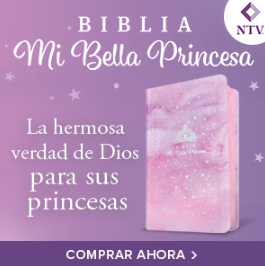A commitment to the truth keeps Justice Anne M. Burke fighting for the church that she wants to see emerge out of the sex abuse scandals.
Guest blog by Anne M. Burke
Truthfulness is as critical a component of my professional life in the legal system as it is an indispensible part of my everyday life. This virtue and value comes from my family and my faith growing up, and it sustains me today in the light of the sex abuse crisis.
Truthfulness, I learned growing up Catholic, is more than not lying. It is a way of engaging the world with sincerity and honest realism. The Sacrament of Penance enabled us take an honest look at our life. The sin was not about just saying a bad word; it was not caring about the feeling of others. I was not just speaking true words, I was being honest about my intentions and motives. That was pretty heady material when you start at seven years old. I thought about that every time I walked up the aisle to Holy Communion. I was uncomfortable with short cuts; half-truths; and fibbers. I did not want them around me. I still don’t.
Since I left the National Review Board, I have found it difficult to distance myself from the clergy abuse issue. Every time I hear the Holy See make a botched attempt to clear things up or see the half-hearted attempt by bishops to appear forthright on the subject, I am confronted by the anger of ordinary Catholics to such mis-starts and un-truths.
Most recently, Wikileaks revealed how devious the machinations were of higher-ups in the Holy See. I must admit that I was saddened to discover in the release of secret U.S. diplomatic cables that the Holy See was more worried about its own “sovereignty” than about the sexual abuse.
The same people who said that the ordination of women as priests was equal to the crime of the sexual abuse of children believed that any intrusion by any legitimate government into the affairs of the Vatican, an “independent nation” of .17 square miles only since the 1929 Lateran Treaty signed with Benito Mussolini, was a moral outrage. Protection of the Holy See, not the safeguarding of innocent children, was the priority of the “government” of Benedict XVI. Is there any limit to the sanctimonious and self-righteous self-protection of the world’s only man-state?
It is heresy to pretend that the man-state and the church are one and the same. When we were young with fresh families we saw a place for us beginning to emerge in the church. As we find ourselves with new grandchildren we worry that our own children find little meaning in the signs and symbols of our cherished faith.
When all is said and done it seems that truth-telling is even more important than ever. From the Pope on down the clerical ladder, truth has been made a victim. Every empty pew; each angry Catholic; every antagonized family; each hurting follower of Christ has a right to the truth. We have the promise of that from the Savior Himself, who has announced that He is the Truth. He had a lot to say about that, but little to say about the man-state formed in 1929.
Instead of ejecting women from the sanctuary, silencing discussion among the baptized, or blurring the lines between the earthly Vatican City-State and the Body of Christ, let’s tell the truth. Let’s focus on not fibbing for the sake of the Kingdom of God and not lying for the sake of the One who died and now is Risen. Let’s leave the clerical theocracy behind and trade it for the Kingdom of God; let the grace of our sacramental life carry us further than we can see. A good dose of dignity and truth would do us all good.
Guest blogger Honorable Anne M. Burke is an Illinois Supreme Court justice and served as interim chair of the National Review Board, the board of lay Catholics that was charged by the U.S. bishops to oversee their compliance with the reforms they had pledged to institute in response to the sex abuse crisis. She most recently wrote “The truth shall set us free” for U.S. Catholic:
As a supplement of the January 2011 special issue on women, U.S. Catholic is asking guest bloggers, “How do you keep the faith as a woman in the church?” To submit your answer (about 500 words), e-mail onlineeditor@uscatholic.org.
Guest blog posts express the views of the author. They do not necessarily reflect the views of U.S. Catholic, its editors, or the Claretians.








